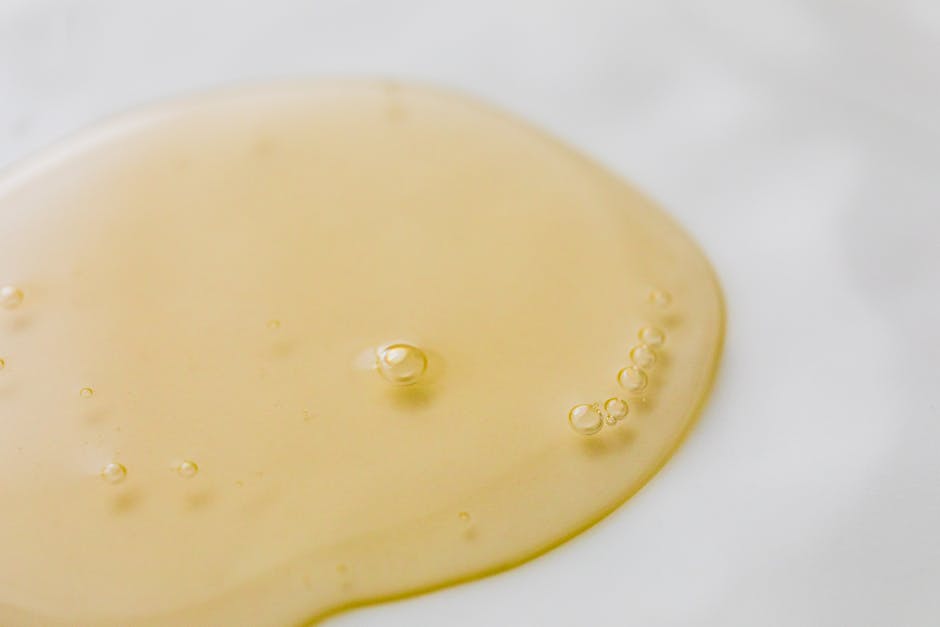Introduction to Organic Leather Care
Leather, the timeless material we all admire, comes with its own set of care needs. But here’s a twist - instead of reaching for those chemical-laden sprays and polishes, what if we leaned into the world of organic leather care? It’s simpler than you might think. Organic leather care focuses on using products free from harsh chemicals to clean, condition, and protect leather goods. This approach not only benefits our beloved leather items but also respects our planet. The main players in organic leather care include natural oils like coconut or jojoba, beeswax for conditioning, and simple soaps for cleaning. These ingredients gently nourish leather, keeping it supple and extending its lifespan without harming the environment. So, whether you’re looking to revive an old leather bag or maintain a new leather jacket, embracing organic methods can make a world of difference. Let’s give our leather the care it deserves, the natural way.
Understanding the Benefits of Organic Leather Solutions
Organic leather care solutions bring a heap of benefits to the table, not just for your leather goods but for the environment too. First off, these solutions ditch the harsh chemicals, relying instead on natural ingredients. This means they’re safer for both you and the planet. Plus, they can be equally effective in cleaning and conditioning leather. By choosing organic, you’re saying no to toxins that can harm wildlife and waterways. Another win? Organic treatments often extend the life of your leather items. They’re gentler, preventing the leather from drying out and cracking over time. So, in opting for organic, you’re not just making a healthier choice but also an economically smart one by prolonging your leather goods’ durability.
Essential Organic Ingredients for Leather Care
When it comes to caring for leather, not all products are created equal. Choosing organic ingredients can protect your leather items and keep them looking great for years. Here’s what you should look for: Olive oil (what I use) is a fantastic moisturizer that can keep leather soft without compromising its durability. Next, beeswax (use this, too) offers a barrier against water and other elements while giving a subtle shine. Coconut oil, another key player, can clean and condition leather goods without harsh chemicals. And don’t forget about lemon essential oil; a few drops mixed with your cleaning solution can help remove tough stains and leave a fresh scent. Lastly, vinegar can act as a gentle cleanser for more stubborn dirt or grime. Together, these ingredients not only care for your leather but do so in a way that’s kind to the environment.
DIY Organic Leather Conditioners and Cleaners
Caring for leather doesn’t mean you have to rely on chemical-laden products. You can easily make your own organic leather conditioners and cleaners at home with just a few simple ingredients. Coconut oil is a fantastic natural conditioner for leather. Just rub a small amount onto the leather and buff it in with a soft cloth. The oil moisturizes the leather, preventing it from drying out and cracking. For cleaning, mix equal parts of white vinegar and water in a spray bottle. Spray it lightly on the leather and wipe it off with a soft cloth. This mixture helps in removing dirt and stains without harming the leather. Adding a few drops of essential oil can leave your leather items smelling fresh. These DIY solutions are not only effective but also safe for your leather goods and the environment.
How to Choose the Right Organic Leather Care Products
When picking organic leather care products, think simple but smart. First, look for products with natural ingredients like beeswax, natural oils (like jojoba or coconut), and shea butter. These elements nourish leather without harsh chemicals. Then, consider the product’s purpose. Are you looking to clean, condition, waterproof, or all three? Make sure the product fits your specific need. Also, check reviews. Other people’s experiences can guide you to the best picks and away from the duds. Finally, think about the leather you’re treating. Different types of leather (like suede versus full-grain) require different care. Picking the right organic leather care product is not just about the fanciest or most expensive option. It’s about understanding what your leather needs to stay healthy and look its best.
Step-by-Step Guide to Cleaning Leather Naturally
Cleaning your leather items naturally is simpler than you think, and it’s good for both your leather and the environment. First up, you need to dust off your leather piece. Use a soft cloth or a brush to gently remove any surface dirt or dust. Don’t rub too hard; a gentle wipe will do. Next, make a cleaning solution. Mix equal parts of water and white vinegar. Take another clean, soft cloth, dip it in the solution, and wring it out well. You don’t want too much liquid. Now, gently wipe your leather with the cloth. Be sure to cover the entire surface but avoid soaking any part of the leather. After you’ve wiped it down with the vinegar solution, it’s time to dry it. Take a clean, dry cloth and softly pat the leather dry. Avoid putting it in direct sunlight or using a hairdryer; let it air dry. Lastly, condition the leather. This is crucial. Mix one part of vinegar with two parts of linseed oil to create a natural conditioner. Apply it to your leather using a soft cloth, work it in with circular motions and leave it overnight. The next day, buff it to a shine with a clean cloth. Remember, treat your leather with care and it will last longer and look better!
Maintaining Your Leather Goods with Organic Practices
Taking care of your leather goods without using harsh chemicals is simpler than you might think, and it’s better for your items and the environment. When we talk about maintaining leather with organic practices, we’re focusing on techniques and products that are natural and gentle. First up, cleaning. For regular dust and dirt, a soft, dry cloth does wonders. Stains? Try mixing equal parts water and white vinegar on a soft cloth. Gently rub the stain - don’t scrub. For conditioning, olive oil can be a leather’s best friend. Apply a small amount to a soft cloth and rub it into the leather in circular motions; this keeps the leather soft and prevents cracking. If your leather gets wet, air drying it away from direct heat sources is the way to go. Direct sunlight or a heater can cause the leather to crack. Remember, less is often more with organic care. Using too much oil or any substance can cause stains or deterioration. So, stick to small amounts and regular, gentle care to keep your leather looking its best.
The Impact of Organic Leather Care on the Environment
Switching to organic leather care products does wonders for the environment. Regular leather care items are packed with chemicals that harm not only the environment but also your health. Organic solutions, on the other hand, are made from natural ingredients that are kind to the planet. They don’t contribute to pollution or the depletion of non-renewable resources. Plus, organic leather care extends the life of your leather goods, reducing waste. Every time you choose an organic conditioner or cleaner, you’re not just taking care of your leather items; you’re taking a step towards a healthier environment. It’s a simple swap with a big impact.
Common Mistakes to Avoid in Organic Leather Care
When it comes to organic leather care, it’s easy to mess up without even realizing it. First off, avoid soaking your leather in water. It’s not a bathing suit. Leather hates being drenched. It can warp, weaken, or even crack if you’re not careful. Another big no-no is using harsh cleaners like detergents found under your kitchen sink. These can strip away natural oils, leaving your leather looking dry and sad. And don’t think slapping on a ton of conditioner will fix everything. Too much of a good thing is actually bad here. It can make the leather greasy or cause it to attract more dirt. Remember, leather needs to breathe. Storing it in plastic is like making it wear a raincoat on a sunny day. Not cool. Stick to breathable cloth bags for storage. Lastly, don’t leave it out to tan like it’s on a beach holiday. Direct sunlight can fade the color, making it look old before its time. Keep these mistakes in mind, and your organic leather will thank you by looking fabulous for years.
Conclusion: Embracing Organic Solutions for Long-lasting Leather
Switching to organic leather care isn’t just a trend; it’s a sustainable choice that benefits both your leather goods and the environment. By embracing natural conditioners and cleaners, you can extend the life of your leather items significantly. These organic solutions penetrate deep into the leather, nourishing it, preserving its flexibility, and enhancing its natural beauty without the harsh chemicals found in traditional products. Products like beeswax-based creams, natural oils, and homemade concoctions prove that taking care of your leather the eco-friendly way doesn’t mean sacrificing quality or effectiveness. Plus, you’re supporting a healthier planet by reducing chemical usage. So, for those looking to make a positive impact and keep their leather in top-notch condition, going organic is the smart, effective choice.

